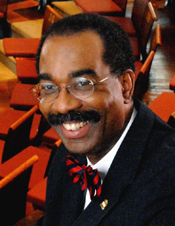 What’s on my mind this month as we return to work after the holiday break is that change in inevitable and can be a good thing.
What’s on my mind this month as we return to work after the holiday break is that change in inevitable and can be a good thing.
The global events of last year—the Brexit vote, the successful nomination of a songwriter as the 2016 Nobel Laureate in Literature, the results of the 2016 Presidential election--indicate that people yearn for and, perhaps, thrive on change. Even if we resist it at first, change can help to steer us into a better and more productive direction.
At the School of Medicine, we are continually looking to evolve—sometimes as a response to outside forces, and other times as a means to stay ahead of current trends. Indeed, one simply has to look at the milestones highlighted in the School of Medicine bicentennial book, The University of Maryland School of Medicine: The First Two Centuries 1807-2007, to see our progress.
In the 10 years since that book was published, we have made even greater strides:
- Launch of new educational innovations and teaching programs, such as the Foundations of Research and Critical Thinking required course for all medical students
- Growing our research programs, including establishment of the Shock Trauma Anesthesiology Research (STAR) Center, Institute for Genome Sciences, Center for Innovative Biomedical Resources, Brain Science Research Consortium Unit, and Institute for Global Health, among others
- Increasing our research funding exponentially to a current annual portfolio exceeding $400 million
- Expanding our clinical practice sites to 50 sites, including 12 hospitals, and opening the Maryland Proton Treatment Center, Lung Healing Program, newly designed NICU, and multidisciplinary outpatient practices at Waterloo Crossing
- Continuing to make a positive impact on local and global community health through the efforts of our staff and medical student service projects, Mini-Medical School, Project Feast, JACQUES Initiative HIV education outreach, and participation in the Maryland workgroup which proposed the creation of the Health Enterprise Zones across the state
- Emerging as a leader in global health through the work of the Institute of Human Virology and Institute for Global Health, which have contributed greatly to the development of vaccines and therapeutics for HIV/AIDS, malaria, Middle Eastern Respiratory Syndrome (MERS), Ebola, cholera, and Zika virus
Importantly, the launch of our Shared Vision 2020 in 2013 showed our ability to evolve in response to rapid and radical changes in science, public policy, and the economy. Shared Vision 2020 created a roadmap for success in all of the School’s key mission areas: education, research, clinical care and community outreach. Our strategic vision plan also laid the groundwork for the creation of the School of Medicine’s strategic plan, “Forging New Pathways for the Future,” which begins this year and spells out our goals for the next five years.
Our new strategic plan, introduced in this issue of the SOMnews, is important because it provides a structured, interdependent framework for clarifying and achieving the specific goals that will lead to achieving our mission to improve health and wellbeing of all people through innovation and discovery. More importantly, it mobilizes resources to focus on maximizing opportunities for success across departments, centers, institutes and programs toward a common goal. The School of Medicine’s strategic plan is unique because it harnesses the individual excellence of all of our academic units in achieving institutional goals using tools for measuring organizational success and accountability.
In addition, the plan is practical. It is highly dynamic and adaptable in that it can change as medicine and biomedical research evolves. Furthermore, it touches on the entire organizational infrastructure, including policies, processes, structure, and is designed to improve the entire School of Medicine from the bottom up, as well as the top down. There are many opportunities for the School of Medicine to continue to enrich and expand its enterprise, as well as the surrounding community. Our new strategic plan is the thread that ties together all those who are interested in soaring to new heights.
Our new strategic plan will position us for maximum and extraordinary success in the face of whatever changes may come our way. Times of significant change call for innovative thinkers who not only face challenges head-on, but welcome the opportunity to think strategically and think opportunistically. By adopting a nimble approach, our School of Medicine has ridden the waves of uncertainty over its 210-year history, always with an exponential trajectory, while maintaining a relentless forward momentum.
Sincerely yours,
E. Albert Reece, MD, PhD, MBA
Vice President for Medical Affairs, University of Maryland
John Z. and Akiko K. Bowers Distinguished Professor and
Dean, University of Maryland School of Medicine
Kudos to our colleagues who are experts in their fields and give their all to represent the School of Medicine!
 Wendy Bernstein, MD, MBA, Associate Professor, Department of Anesthesiology, participated in the Doctors Back to School Program at the University of Chicago’s Carter G Woodson Charter School on behalf of the AMA and Diversity Committee for the ASA during the annual conference in Chicago. A group of 12 doctors met with 200 6th, 7th and 8th grade students to speak about careers in medicine, health and, specifically, anesthesiology.
Wendy Bernstein, MD, MBA, Associate Professor, Department of Anesthesiology, participated in the Doctors Back to School Program at the University of Chicago’s Carter G Woodson Charter School on behalf of the AMA and Diversity Committee for the ASA during the annual conference in Chicago. A group of 12 doctors met with 200 6th, 7th and 8th grade students to speak about careers in medicine, health and, specifically, anesthesiology.
 Natalie Davis, MD, MMSc, Assistant Professor, Department of Pediatrics, presented “The Who, What, Where, When, Why, and How of the Car Seat Tolerance Screen” at the annual New England Child Passenger Safety Conference in Burlington, VT, in September 2016.
Natalie Davis, MD, MMSc, Assistant Professor, Department of Pediatrics, presented “The Who, What, Where, When, Why, and How of the Car Seat Tolerance Screen” at the annual New England Child Passenger Safety Conference in Burlington, VT, in September 2016.
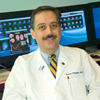 Vasken Dilsizian, MD, Professor, Department of Diagnostic Radiology & Nuclear Medicine, presented “Emergency Imaging of Acute Coronary Syndromes: Traditional Strategies are Still Valuable” at the Radiological Society of North America (RSNA) Annual Scientific Sessions, held in Chicago on November 30, 2016.
Vasken Dilsizian, MD, Professor, Department of Diagnostic Radiology & Nuclear Medicine, presented “Emergency Imaging of Acute Coronary Syndromes: Traditional Strategies are Still Valuable” at the Radiological Society of North America (RSNA) Annual Scientific Sessions, held in Chicago on November 30, 2016.
 Colleen Hughes Driscoll, MD, Assistant Professor, Department of Pediatrics, presented “Case in Point: Leveraging Wireless Technology for Improving Communication During Neonatal Resuscitation” at the 2016 Strategic Innovation Symposium: The Intelligent Enterprise at Harvard University on September 28, 2016. The event was organized by Technology and Entrepreneurship Center at Harvard.
Colleen Hughes Driscoll, MD, Assistant Professor, Department of Pediatrics, presented “Case in Point: Leveraging Wireless Technology for Improving Communication During Neonatal Resuscitation” at the 2016 Strategic Innovation Symposium: The Intelligent Enterprise at Harvard University on September 28, 2016. The event was organized by Technology and Entrepreneurship Center at Harvard.
 Termeh Feinberg, PhD, Postdoctoral Fellow, Center for Integrative Medicine, collaborated with the Gamma Mu chapter of the Delta Omega Honorary Society for Public Health as an invited speaker on “Strategies for Success: Four-Time Consecutive Winner of Delta Omega National Award” at the 144th American Public Health Association Annual Meeting and Exposition in Denver in October.
Termeh Feinberg, PhD, Postdoctoral Fellow, Center for Integrative Medicine, collaborated with the Gamma Mu chapter of the Delta Omega Honorary Society for Public Health as an invited speaker on “Strategies for Success: Four-Time Consecutive Winner of Delta Omega National Award” at the 144th American Public Health Association Annual Meeting and Exposition in Denver in October.
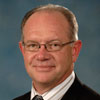 Gary Fiskum, PhD, the M. Jane Matjasko Professor for Research in Anesthesiology, Department of Anesthesiology, presented “Translational Research in Ischemic and Traumatic Brain Injury: The Basic Scientist’s Perspective” at the Department of Biological Chemistry, Johns Hopkins University School of Medicine, in October 2016.
Gary Fiskum, PhD, the M. Jane Matjasko Professor for Research in Anesthesiology, Department of Anesthesiology, presented “Translational Research in Ischemic and Traumatic Brain Injury: The Basic Scientist’s Perspective” at the Department of Biological Chemistry, Johns Hopkins University School of Medicine, in October 2016.
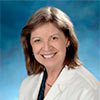 Mary Johnson, PhD, Associate Professor, Department of Ophthalmology & Visual Sciences, gave a keynote address on “What we Have Learned From the Monkey Model of NAION” to the 15th Chinese Congress on Visual Physiology in Shenzhen, China, in June 2016.
Mary Johnson, PhD, Associate Professor, Department of Ophthalmology & Visual Sciences, gave a keynote address on “What we Have Learned From the Monkey Model of NAION” to the 15th Chinese Congress on Visual Physiology in Shenzhen, China, in June 2016.
 Judy LaKind, PhD, Adjunct Associate Professor, Department of Epidemiology & Public Health, was a presenter at the all-day Public Forum on BPA-Free Can Linings at The Berkeley Center for Green Chemistry on November 4, where she presented “Can Coatings for Foods and Beverages: Issues and Options.”
Judy LaKind, PhD, Adjunct Associate Professor, Department of Epidemiology & Public Health, was a presenter at the all-day Public Forum on BPA-Free Can Linings at The Berkeley Center for Green Chemistry on November 4, where she presented “Can Coatings for Foods and Beverages: Issues and Options.”
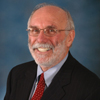 Myron Levine, MD, DTPH, the Simon and Bessie Grollman Distinguished Professor of Medicine, Center for Vaccine Development and the Institute of Global Health, and Associate Dean for Global Health, Vaccinology and Infectious Diseases, presented “Can Serum Vibriocidal Antibodies Mediate Bactericidal Activity Against Vibrio Cholerae O1 in the Small Intestine of Persons Recovered From Wild Type Cholera and in Recipients of Live Oral Vaccine?” at the 2016 International Society for Vaccines Annual Congress Conference on October 4, 2016.
Myron Levine, MD, DTPH, the Simon and Bessie Grollman Distinguished Professor of Medicine, Center for Vaccine Development and the Institute of Global Health, and Associate Dean for Global Health, Vaccinology and Infectious Diseases, presented “Can Serum Vibriocidal Antibodies Mediate Bactericidal Activity Against Vibrio Cholerae O1 in the Small Intestine of Persons Recovered From Wild Type Cholera and in Recipients of Live Oral Vaccine?” at the 2016 International Society for Vaccines Annual Congress Conference on October 4, 2016.
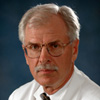 Philip Mackowiak, MD, MACP, Professor Emeritus, Department of Medicine, and the Carolyn Frenkil and Selvin Passen History of Medicine Scholar-in-Residence, was The Gold Humanism Honor Society Visiting Professor at the Warren Alpert Medical School of Brown University In Providence, RI on November 15.
Philip Mackowiak, MD, MACP, Professor Emeritus, Department of Medicine, and the Carolyn Frenkil and Selvin Passen History of Medicine Scholar-in-Residence, was The Gold Humanism Honor Society Visiting Professor at the Warren Alpert Medical School of Brown University In Providence, RI on November 15.
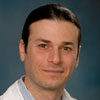 Jay Menaker, MD, Associate Professor of Surgery, Program in Trauma, presented a lunch session on “Beyond Damage Control – Thromboelastogram in the ICU. TEG and ROTEM in Other Populations (Cardiac, Liver, Postpartum)” at the 75th Annual Meeting of the American Association for the Surgery of Trauma and Clinical Congress of Acute Care Surgery, held September 14–17, 2016 in Waikoloa, HI.
Jay Menaker, MD, Associate Professor of Surgery, Program in Trauma, presented a lunch session on “Beyond Damage Control – Thromboelastogram in the ICU. TEG and ROTEM in Other Populations (Cardiac, Liver, Postpartum)” at the 75th Annual Meeting of the American Association for the Surgery of Trauma and Clinical Congress of Acute Care Surgery, held September 14–17, 2016 in Waikoloa, HI.
 Andrea Meredith, PhD, Associate Professor, Department of Physiology, and Mark Nelson, PhD, a former Department of Physiology trainee, co-organized the 70th Annual Society of General Physiologists Meeting and Symposium “Genetic Models for Ion Channel Function in Physiology and Disease,” held at the Marine Biological Laboratory in Woods Hole, MA, September 7–11, 2016. The scientific program brought together 130 prominent scientists using genetic, electrophysiological, and imaging techniques to elucidate the molecular, cellular, and integrated physiology of ion channels in a variety of human disease models. Dr. Meredith also presented a talk entitled “Circadian Regulation of BK Channel Splice Variant Expression.”
Andrea Meredith, PhD, Associate Professor, Department of Physiology, and Mark Nelson, PhD, a former Department of Physiology trainee, co-organized the 70th Annual Society of General Physiologists Meeting and Symposium “Genetic Models for Ion Channel Function in Physiology and Disease,” held at the Marine Biological Laboratory in Woods Hole, MA, September 7–11, 2016. The scientific program brought together 130 prominent scientists using genetic, electrophysiological, and imaging techniques to elucidate the molecular, cellular, and integrated physiology of ion channels in a variety of human disease models. Dr. Meredith also presented a talk entitled “Circadian Regulation of BK Channel Splice Variant Expression.”
 Braxton Mitchell, PhD, MPH, Professor of Medicine, Program in Personalized & Genomic Medicine, spoke at the NORC Seminar Series at the University of Alabama at Birmingham in Birmingham, AL in October.
Braxton Mitchell, PhD, MPH, Professor of Medicine, Program in Personalized & Genomic Medicine, spoke at the NORC Seminar Series at the University of Alabama at Birmingham in Birmingham, AL in October.
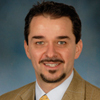 Jacques Ravel, PhD, Professor of Microbiology & Immunology and Associate Director, Genomics, Institute for Genome Sciences, was an invited speaker at the Cold Spring Harbor Asia Conference, in Suzhou, China, from September 26–30, 2016, where he presented “Insight Into the Vaginal Microbiome-Host Interaction.” He also was an invited speaker at “Exploring Human Host-Microbiome Interactions in Health and Disease” at the Wellcome Genome Campus Conference Centre in Hinxton, Cambridge, UK, from September 6–9, 2016. There he presented “Safety and Regulatory Issues Associated with Vaginal Microbiota Transplants: A Case Study.”
Jacques Ravel, PhD, Professor of Microbiology & Immunology and Associate Director, Genomics, Institute for Genome Sciences, was an invited speaker at the Cold Spring Harbor Asia Conference, in Suzhou, China, from September 26–30, 2016, where he presented “Insight Into the Vaginal Microbiome-Host Interaction.” He also was an invited speaker at “Exploring Human Host-Microbiome Interactions in Health and Disease” at the Wellcome Genome Campus Conference Centre in Hinxton, Cambridge, UK, from September 6–9, 2016. There he presented “Safety and Regulatory Issues Associated with Vaginal Microbiota Transplants: A Case Study.”
 Geoffrey Rosenthal, MD, PhD, Professor, Department of Pediatrics, along with Brian DeFilippis, Associate Dean for Development and Special Assistant for the Dean, UMSOM, and Sarah Bradley, Director of Foundation Relations, UMSOM, were all speakers at the Foundation Funding for Research Scientists: Building the Partnership Between Scientists and Development Officers on September 22, 2016. In recent years, support for biomedical research from traditional sources has stagnated, and in some cases decreased. Private philanthropy, from individuals and foundations, can be an alternative source of funds. Understanding the methodology used by development officers to develop relationships and solicit private gifts and grants, can lead to new opportunities to advance biomedical research. This session helped dispel some of the common misconceptions about private philanthropy and provide new resources for research support.
Geoffrey Rosenthal, MD, PhD, Professor, Department of Pediatrics, along with Brian DeFilippis, Associate Dean for Development and Special Assistant for the Dean, UMSOM, and Sarah Bradley, Director of Foundation Relations, UMSOM, were all speakers at the Foundation Funding for Research Scientists: Building the Partnership Between Scientists and Development Officers on September 22, 2016. In recent years, support for biomedical research from traditional sources has stagnated, and in some cases decreased. Private philanthropy, from individuals and foundations, can be an alternative source of funds. Understanding the methodology used by development officers to develop relationships and solicit private gifts and grants, can lead to new opportunities to advance biomedical research. This session helped dispel some of the common misconceptions about private philanthropy and provide new resources for research support.
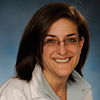 Deborah Stein, MD, MPH, the R Adams Cowley Professor in Shock and Trauma, Program in Trauma, presented “Delivering High Quality Care in a High Stakes Environment” at the 2016 Sentara Surgical HPT Safety Summit at the Eastern Virginia Medical School in Williamsburg, VA on September 29, 2016.
Deborah Stein, MD, MPH, the R Adams Cowley Professor in Shock and Trauma, Program in Trauma, presented “Delivering High Quality Care in a High Stakes Environment” at the 2016 Sentara Surgical HPT Safety Summit at the Eastern Virginia Medical School in Williamsburg, VA on September 29, 2016.
 Hervé Tettelin, PhD, Associate Professor, Microbiology & Immunology, Institute for Genome Sciences, presented “CloVR Comparative Applications with S. pneumoniae and M. abscessus” at the WS-16 Do-It-Yourself Microbial Genome Sequence Analysis workshop, held during the 1st American Society for Microbiology: Microbe Conference, in Boston, MA, June 16–20, 2016. He also presented “The Cloud Virtual Resource (Clovr) and The Sybil Comparative Genomics Interface,” chaired and presented at the “Meet the Expert” session on “Do-It-Yourself Genome Analyses And Data Management,” and presented “From TIGR4 to Thousands of Pneumococcal Genomes In 15 Years” at the Plenary Session on Bacterial Genomics, all during the 10th International Symposium on Pneumococci and Pneumococcal Diseases, held in Glasgow, Scotland, from June 26–30, 2016.
Hervé Tettelin, PhD, Associate Professor, Microbiology & Immunology, Institute for Genome Sciences, presented “CloVR Comparative Applications with S. pneumoniae and M. abscessus” at the WS-16 Do-It-Yourself Microbial Genome Sequence Analysis workshop, held during the 1st American Society for Microbiology: Microbe Conference, in Boston, MA, June 16–20, 2016. He also presented “The Cloud Virtual Resource (Clovr) and The Sybil Comparative Genomics Interface,” chaired and presented at the “Meet the Expert” session on “Do-It-Yourself Genome Analyses And Data Management,” and presented “From TIGR4 to Thousands of Pneumococcal Genomes In 15 Years” at the Plenary Session on Bacterial Genomics, all during the 10th International Symposium on Pneumococci and Pneumococcal Diseases, held in Glasgow, Scotland, from June 26–30, 2016.
 Quincy Tran, MD, Assistant Professor, Department of Emergency Medicine—as a member of the non-profit organization “Impact Health Vietnam”—gave five lectures at the Can Tho Central Hospital in Can Tho City Vietnam from September 5–9, 206. He presented: Review of Advanced Cardiovascular Life Support Algorithm; Basic EKG and Recognition of Emergency Rhythm; Pulmonary Embolism: Diagnosis and Management; Acute Coronary Syndrome: Evidence-Based Management; and Septic Shock: New Evidence in Management.
Quincy Tran, MD, Assistant Professor, Department of Emergency Medicine—as a member of the non-profit organization “Impact Health Vietnam”—gave five lectures at the Can Tho Central Hospital in Can Tho City Vietnam from September 5–9, 206. He presented: Review of Advanced Cardiovascular Life Support Algorithm; Basic EKG and Recognition of Emergency Rhythm; Pulmonary Embolism: Diagnosis and Management; Acute Coronary Syndrome: Evidence-Based Management; and Septic Shock: New Evidence in Management.
 Emerson Wickwire, PhD, ABPP, CBSM, FAASM, Assistant Professor, Departments of Psychiatry and Medicine, emceed and moderated the Business Meeting of the Maryland Sleep Society, held at the Conference Center at Shepard Pratt on October 28. The featured guest expert was Liesl Cooper, PhD, Chief Health Economist at ResMed.
Emerson Wickwire, PhD, ABPP, CBSM, FAASM, Assistant Professor, Departments of Psychiatry and Medicine, emceed and moderated the Business Meeting of the Maryland Sleep Society, held at the Conference Center at Shepard Pratt on October 28. The featured guest expert was Liesl Cooper, PhD, Chief Health Economist at ResMed.
 Eunyoung Yang, MD, Clinical Instructor, Department of Medicine, presented a clinico- pathologic conference on “A 56 Years Old Male With Fever and Chills” at Medical Grand Rounds on October 26 at the University of Maryland Medical Center.
Eunyoung Yang, MD, Clinical Instructor, Department of Medicine, presented a clinico- pathologic conference on “A 56 Years Old Male With Fever and Chills” at Medical Grand Rounds on October 26 at the University of Maryland Medical Center.
More than 30 members of the Department of Radiation Oncology contributed to a total of 49 podium, poster, educational, and symposium sessions at the 2016 meeting of the American Society for Radiation Oncology, held in Boston, MA, September 25–28.
Congratulations to the following who have received honors!
 Eryn Dixon, a PhD student in the laboratory of Owen Woodward, PhD, Assistant Professor, Department of Physiology, was awarded The Glaser Prize in Imaging for 2016 for her image showing a mini-kidney grown in a dish that has been induced to form a cyst resembling those characterizing polycystic kidney disease. The Glaser Prize was established to honor Dr. Edmund Glaser when he retired from the Department of Physiology. Dr. Glaser and his colleague, Dr. Hendrick Van der Loos, made a seminal contribution in the 1960’s by creating the first computer-assisted neuron reconstruction system - Neurolucida. He went on to found a company, MBF Bioscience, to further develop and market software for neuroscience imaging in 1988. The prize is awarded annually for the most visually attractive scientific image submitted by a student working in the laboratory of a faculty member in the Department of Physiology.
Eryn Dixon, a PhD student in the laboratory of Owen Woodward, PhD, Assistant Professor, Department of Physiology, was awarded The Glaser Prize in Imaging for 2016 for her image showing a mini-kidney grown in a dish that has been induced to form a cyst resembling those characterizing polycystic kidney disease. The Glaser Prize was established to honor Dr. Edmund Glaser when he retired from the Department of Physiology. Dr. Glaser and his colleague, Dr. Hendrick Van der Loos, made a seminal contribution in the 1960’s by creating the first computer-assisted neuron reconstruction system - Neurolucida. He went on to found a company, MBF Bioscience, to further develop and market software for neuroscience imaging in 1988. The prize is awarded annually for the most visually attractive scientific image submitted by a student working in the laboratory of a faculty member in the Department of Physiology.
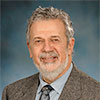 Howard Dubowitz, MB, ChB, MS, FAAP, Professor, Department of Pediatrics, and Director, Center for Families, was awarded the 2016 Alumni Award of Merit, the highest honor bestowed on alumni of the Harvard T.H. Chan School of Public Health.
Howard Dubowitz, MB, ChB, MS, FAAP, Professor, Department of Pediatrics, and Director, Center for Families, was awarded the 2016 Alumni Award of Merit, the highest honor bestowed on alumni of the Harvard T.H. Chan School of Public Health.
 Termeh Feinberg, PhD, Postdoctoral Fellow, Center for Integrative Medicine, was the recipient of the People’s Choice Award for Original Research at the 27th American Herbalists Guild Annual National Symposium for “Herbal Supplements Reported By Those with Fibromyalgia in Two National Surveys: 2007 and 2012.”
Termeh Feinberg, PhD, Postdoctoral Fellow, Center for Integrative Medicine, was the recipient of the People’s Choice Award for Original Research at the 27th American Herbalists Guild Annual National Symposium for “Herbal Supplements Reported By Those with Fibromyalgia in Two National Surveys: 2007 and 2012.”
 Jerimy Polf, PhD, Associate Professor, Department of Radiation Oncology, was presented with the 2016 Abell Foundation Award for Excellence in Innovation on October 6. The award recognized Polf’s development of a prompt gamma imaging system for use with proton therapy. The award came with a $50,000 research grant to be used to begin the process of commercializing the system.
Jerimy Polf, PhD, Associate Professor, Department of Radiation Oncology, was presented with the 2016 Abell Foundation Award for Excellence in Innovation on October 6. The award recognized Polf’s development of a prompt gamma imaging system for use with proton therapy. The award came with a $50,000 research grant to be used to begin the process of commercializing the system.
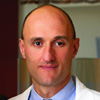 William Regine, MD, Professor and the Isadore & Fannie Schneider Foxman Chair, Department of Radiation Oncology, was honored on November 1 with the Entrepreneur of the Year award as part of UMB’s Founders Week. The award acknowledged the role he played in bringing the Maryland Proton Treatment Center to fruition and was presented at a ceremony in the BioPark.
William Regine, MD, Professor and the Isadore & Fannie Schneider Foxman Chair, Department of Radiation Oncology, was honored on November 1 with the Entrepreneur of the Year award as part of UMB’s Founders Week. The award acknowledged the role he played in bringing the Maryland Proton Treatment Center to fruition and was presented at a ceremony in the BioPark.
 Deborah Stein, MD, MPH, the R Adams Cowley Professor in Shock and Trauma, Program in Trauma, was the recipient of the 2016 R Adams Cowley Shock Trauma Center Critical Care Fellowship Teacher of the Year Award.
Deborah Stein, MD, MPH, the R Adams Cowley Professor in Shock and Trauma, Program in Trauma, was the recipient of the 2016 R Adams Cowley Shock Trauma Center Critical Care Fellowship Teacher of the Year Award.
 Ramya Swamy, MD, MPH, Assistant Professor, Department of Ophthalmology & Visual Sciences, received a one-year, $10,000 Mentoring for Advancement of Physician-Scientists (MAPS) award from the American Glaucoma Society to study “Surgeon Attitudes and Preferences Regarding Emerging Surgical Technologies and Procedures in the Realm of Minimally Invasive Glaucoma Surgery (MIGS).”
Ramya Swamy, MD, MPH, Assistant Professor, Department of Ophthalmology & Visual Sciences, received a one-year, $10,000 Mentoring for Advancement of Physician-Scientists (MAPS) award from the American Glaucoma Society to study “Surgeon Attitudes and Preferences Regarding Emerging Surgical Technologies and Procedures in the Realm of Minimally Invasive Glaucoma Surgery (MIGS).”
We applaud our colleagues on their recent appointments!
 Peter Bowman, PT, DPT, FAAOMPT, Visiting Assistant Professor, Department of Orthopaedics, was recently appointed as Site Therapy Director for the department’s Camden Yards site.
Peter Bowman, PT, DPT, FAAOMPT, Visiting Assistant Professor, Department of Orthopaedics, was recently appointed as Site Therapy Director for the department’s Camden Yards site.
 Wilbur Chen, MD, MS, Associate Professor of Medicine and the Center for Vaccine Development, Institute for Global Health, has been appointed a member of the Bill and Melinda Gates Foundation-sponsored Controlled Human Infection Models (CHIM) Scientific Leadership Group. The first meeting was held at the 2016 Grand Challenges meeting in London, UK, on October 23, 2016.
Wilbur Chen, MD, MS, Associate Professor of Medicine and the Center for Vaccine Development, Institute for Global Health, has been appointed a member of the Bill and Melinda Gates Foundation-sponsored Controlled Human Infection Models (CHIM) Scientific Leadership Group. The first meeting was held at the 2016 Grand Challenges meeting in London, UK, on October 23, 2016.
 Alan Cross, MD, Professor of Medicine, Center for Vaccine Development and the Institute for Global Health, was awarded an Honorary Lifetime Membership in the International Endotoxin and Innate Immunity Society for outstanding achievement in endotoxin research at the 14th Biennial Meeting in Hamburg, Germany September 23, 2016.
Alan Cross, MD, Professor of Medicine, Center for Vaccine Development and the Institute for Global Health, was awarded an Honorary Lifetime Membership in the International Endotoxin and Innate Immunity Society for outstanding achievement in endotoxin research at the 14th Biennial Meeting in Hamburg, Germany September 23, 2016.
 Stephen Davis, MBBS, FACE, FRCP, MACP, the Theodore E. Woodward Professor of Medicine and Chairman, Department of Medicine, has been elected to Mastership in the American College of Physicians (ACP). Election to Mastership recognizes outstanding and extraordinary career accomplishments. Masters must have made notable contributions to medicine. This includes, but is not limited to, teaching, outstanding work in clinical medicine (research or practice), contributions to preventive medicine, improvements in the delivery of health care, and/or contributions to the medical literature. According to ACP bylaws, Masters are elected “on account of personal character, positions of honor, contributions toward furthering the purposes of the ACP, eminence in practice or in medical research, or other attainments in science or in the art of medicine.” ACP activities are also taken into consideration for all candidates. This includes service to the ACP in an official capacity, participation in chapter activities, and involvement in the development of College products and educational programs. Volunteer and community service is also taken into consideration. Dr. Davis will formally be honored at a Convocation during the Internal Medicine Meeting 2017, ACP’s annual scientific conference, which will be held in San Diego, March 30–April 1.
Stephen Davis, MBBS, FACE, FRCP, MACP, the Theodore E. Woodward Professor of Medicine and Chairman, Department of Medicine, has been elected to Mastership in the American College of Physicians (ACP). Election to Mastership recognizes outstanding and extraordinary career accomplishments. Masters must have made notable contributions to medicine. This includes, but is not limited to, teaching, outstanding work in clinical medicine (research or practice), contributions to preventive medicine, improvements in the delivery of health care, and/or contributions to the medical literature. According to ACP bylaws, Masters are elected “on account of personal character, positions of honor, contributions toward furthering the purposes of the ACP, eminence in practice or in medical research, or other attainments in science or in the art of medicine.” ACP activities are also taken into consideration for all candidates. This includes service to the ACP in an official capacity, participation in chapter activities, and involvement in the development of College products and educational programs. Volunteer and community service is also taken into consideration. Dr. Davis will formally be honored at a Convocation during the Internal Medicine Meeting 2017, ACP’s annual scientific conference, which will be held in San Diego, March 30–April 1.
 David Gens, MD, Professor of Surgery, Program in Trauma, has been appointed to serve on the School of Medicine’s Curriculum Coordinating Committee.
David Gens, MD, Professor of Surgery, Program in Trauma, has been appointed to serve on the School of Medicine’s Curriculum Coordinating Committee.
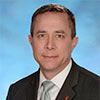 David (“Marco”) Marcozzi, MD, MHS-CL, FACEP, Associate Professor, Department of Emergency Medicine, has been appointed to the new position of Assistant Chief Medical Officer for Acute Care at the University of Maryland Medical Center. In this position, Dr. Marcozzi and his staff and colleagues will promote improved throughput, efficient patient flow, the patient experience, and most importantly, enhanced quality of care and patient safety. Dr. Marcozzi has held leading positions at CMS/HHS and within the Office of the Assistant Secretary for Preparedness and Response. Moreover, he served on the White House National Security Council as Director of All-Hazards Medical Preparedness Policy, and completed a Congressional fellowship at the U.S. Senate. A Lieutenant Colonel in the U.S. Army Reserves, Dr. Marcozzi has mobilized four times since 2001 and is currently assigned to the U. S. Army Special Operations Command as a Deputy Surgeon. The recipient of numerous honors and certifications and a frequent author and presenter, Dr. Marcozzi brings powerful operational expertise, clinical experience and a systems approach to his new role.
David (“Marco”) Marcozzi, MD, MHS-CL, FACEP, Associate Professor, Department of Emergency Medicine, has been appointed to the new position of Assistant Chief Medical Officer for Acute Care at the University of Maryland Medical Center. In this position, Dr. Marcozzi and his staff and colleagues will promote improved throughput, efficient patient flow, the patient experience, and most importantly, enhanced quality of care and patient safety. Dr. Marcozzi has held leading positions at CMS/HHS and within the Office of the Assistant Secretary for Preparedness and Response. Moreover, he served on the White House National Security Council as Director of All-Hazards Medical Preparedness Policy, and completed a Congressional fellowship at the U.S. Senate. A Lieutenant Colonel in the U.S. Army Reserves, Dr. Marcozzi has mobilized four times since 2001 and is currently assigned to the U. S. Army Special Operations Command as a Deputy Surgeon. The recipient of numerous honors and certifications and a frequent author and presenter, Dr. Marcozzi brings powerful operational expertise, clinical experience and a systems approach to his new role.
Congratulations to our very productive faculty on their recent grants and contracts!
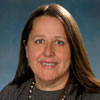 Ann Gruber-Baldini, PhD, Professor, Department of Epidemiology & Public Health, received a two-year, $423,500 award from the National Institutes of Health for “Hip Fracture Caregiver Intervention Function-Focused Care Hip Care at Home.”
Ann Gruber-Baldini, PhD, Professor, Department of Epidemiology & Public Health, received a two-year, $423,500 award from the National Institutes of Health for “Hip Fracture Caregiver Intervention Function-Focused Care Hip Care at Home.”
 Eileen Barry, PhD, Professor of Medicin, Center for Vaccine Development and the Institute for Global Health, received a two-year, $1,214,150 grant from PATH for “Developing a Vaccine for Protection Against Diarrhea Caused by ST-Producing ETEC.”
Eileen Barry, PhD, Professor of Medicin, Center for Vaccine Development and the Institute for Global Health, received a two-year, $1,214,150 grant from PATH for “Developing a Vaccine for Protection Against Diarrhea Caused by ST-Producing ETEC.”
 Cynthia Bearer, MD, PhD, the Mary Gray Cobey Endowed Professor of Neonatology, Department of Pediatrics, has been awarded $7,718,381 over five years from NIH/NICHD for “Effects of Perinatal Hypoxia-Ischemia on the Developing Cerebellum With and Without Prior Inflammation.”
Cynthia Bearer, MD, PhD, the Mary Gray Cobey Endowed Professor of Neonatology, Department of Pediatrics, has been awarded $7,718,381 over five years from NIH/NICHD for “Effects of Perinatal Hypoxia-Ischemia on the Developing Cerebellum With and Without Prior Inflammation.”
 Wilbur Chen, MD, MS, Associate Professor of Medicine and the Center for Vaccine Development, Institute for Global Health, received $208,465 grant from NIH for Task Area D, Option 7A for “A Sub-study to Evaluate the Anti-Hemagglutinin Antibody Responses by Protein Microarray in Subjects Who Received an A/H5N1 Vaccine With Or Without AS03 and MF59 Adjuvants in DMID 10-0017 and 10-0016 (Short Title: Influenza Microarray, DMID 16-0107)” for the period 11/14/2016-5/14/2018.
Wilbur Chen, MD, MS, Associate Professor of Medicine and the Center for Vaccine Development, Institute for Global Health, received $208,465 grant from NIH for Task Area D, Option 7A for “A Sub-study to Evaluate the Anti-Hemagglutinin Antibody Responses by Protein Microarray in Subjects Who Received an A/H5N1 Vaccine With Or Without AS03 and MF59 Adjuvants in DMID 10-0017 and 10-0016 (Short Title: Influenza Microarray, DMID 16-0107)” for the period 11/14/2016-5/14/2018.
 Sunjay Kaushal, MD, PhD, Associate Professor, Department of Surgery, and Peter Gaskin, MD, Assistant Professor, Department of Pediatrics, (co-investigator), have been awarded a renewal grant of $50,000 from the Christopher L. Moseley Foundation for “Stem Cell Therapy for Dilated Cardiomyopathy Patients,” a joint endeavor between pediatric cardiac surgery and pediatric cardiology.
Sunjay Kaushal, MD, PhD, Associate Professor, Department of Surgery, and Peter Gaskin, MD, Assistant Professor, Department of Pediatrics, (co-investigator), have been awarded a renewal grant of $50,000 from the Christopher L. Moseley Foundation for “Stem Cell Therapy for Dilated Cardiomyopathy Patients,” a joint endeavor between pediatric cardiac surgery and pediatric cardiology.
 Surbhi Leekha, MBBS, MPH, Associate Professor, Department of Epidemiology & Public Health, received a one-year, $455,478 award from the Centers for Disease Control for “Implementation of a Clostridium Difficile Infection Reduction Bundle in Acute Care Hospitals: Feasibility and Pilot to Guide a Multicenter Stepped Wedge Cluster Trial.”
Surbhi Leekha, MBBS, MPH, Associate Professor, Department of Epidemiology & Public Health, received a one-year, $455,478 award from the Centers for Disease Control for “Implementation of a Clostridium Difficile Infection Reduction Bundle in Acute Care Hospitals: Feasibility and Pilot to Guide a Multicenter Stepped Wedge Cluster Trial.”
 Myron Levine, MD, DTPH, the Simon and Bessie Grollman Distinguished Professor of Medicine, Center for Vaccine Development and the Institute of Global Health, and Associate Dean for Global Health, Vaccinology and Infectious Diseases, received a $299,929 supplement from The Bill and Melinda Gates Foundation for “A Point-of-Care Rapid Assessment Tool to Detect Protective Levels of Vaccine-Related Antibodies in Oral (Crevicular) Fluid of Infants, Toddlers & Older Subjects.” Dr. Levine also received a $3,499,799 grant from the Bill and Melinda Gates Foundation for “Current Prevalence of Chronic Typhoid Carriers and Residual Transmission of Typhoid Fever in Santiago, Chile” for the period 12/5/2016–12/31/2019.
Myron Levine, MD, DTPH, the Simon and Bessie Grollman Distinguished Professor of Medicine, Center for Vaccine Development and the Institute of Global Health, and Associate Dean for Global Health, Vaccinology and Infectious Diseases, received a $299,929 supplement from The Bill and Melinda Gates Foundation for “A Point-of-Care Rapid Assessment Tool to Detect Protective Levels of Vaccine-Related Antibodies in Oral (Crevicular) Fluid of Infants, Toddlers & Older Subjects.” Dr. Levine also received a $3,499,799 grant from the Bill and Melinda Gates Foundation for “Current Prevalence of Chronic Typhoid Carriers and Residual Transmission of Typhoid Fever in Santiago, Chile” for the period 12/5/2016–12/31/2019.
 Braxton Mitchell, PhD, MPH, Professor of Medicine, Program in Personalized & Genomic Medicine, received a $24,000 administrative supplement from the National Heart, Lung, and Blood Institute for “Identification and Functional Characterization of a Gene Influencing LDL-C on 5q.”
Braxton Mitchell, PhD, MPH, Professor of Medicine, Program in Personalized & Genomic Medicine, received a $24,000 administrative supplement from the National Heart, Lung, and Blood Institute for “Identification and Functional Characterization of a Gene Influencing LDL-C on 5q.”
 Myaing Nyunt, MD, MPH, PhD, Assistant Professor of Medicine in the Division of Malaria Research, Institute for Global Health, received a $512,227 supplement from The Bill and Melinda Gates Foundation for “Evidence and Action for Malaria Elimination in Myanmar.”
Myaing Nyunt, MD, MPH, PhD, Assistant Professor of Medicine in the Division of Malaria Research, Institute for Global Health, received a $512,227 supplement from The Bill and Melinda Gates Foundation for “Evidence and Action for Malaria Elimination in Myanmar.”
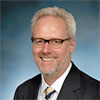 Christopher Plowe, MD, MPH, FASTMH, the Frank M. Calia, MD Professor of Medicine and Founding Director, Institute for Global Health, received $23,724 from WHO for the period 11/1/16–4/30/17 for “To Calculate Prevalence Estimates of K13 Mutations Within Sites in Myanmar and Southern China.” He also received a four-month, $35,934 grant from Sanaria for “International Training on PCR Analysis for the Equatorial Guinea.”
Christopher Plowe, MD, MPH, FASTMH, the Frank M. Calia, MD Professor of Medicine and Founding Director, Institute for Global Health, received $23,724 from WHO for the period 11/1/16–4/30/17 for “To Calculate Prevalence Estimates of K13 Mutations Within Sites in Myanmar and Southern China.” He also received a four-month, $35,934 grant from Sanaria for “International Training on PCR Analysis for the Equatorial Guinea.”
 Lynn Schriml, PhD, Associate Professor Department of Epidemiology & Public Health, received a 13-month, $249,288 award from the Sloan Foundation for the “MoBE 2017 Conference.”
Lynn Schriml, PhD, Associate Professor Department of Epidemiology & Public Health, received a 13-month, $249,288 award from the Sloan Foundation for the “MoBE 2017 Conference.”
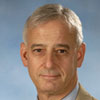 Michael Terrin, MDCM, MPH, Professor, Department of Epidemiology & Public Health, and Rose Viscardi, MD, Professor, Department of Pediatrics, received a seven-year, $6,904,762 award from the National Institutes of Health for a Progenitor Cell Translational Consortium (PCTC) Administrative Coordinating Center.
Michael Terrin, MDCM, MPH, Professor, Department of Epidemiology & Public Health, and Rose Viscardi, MD, Professor, Department of Pediatrics, received a seven-year, $6,904,762 award from the National Institutes of Health for a Progenitor Cell Translational Consortium (PCTC) Administrative Coordinating Center.
 J. Kathleen Tracy, PhD, Associate Professor, Department of Epidemiology & Public Health, received a three-year, $6,814,500, contract from the Maryland Department of Health and Mental Hygiene for “Research and Evaluation for the Maryland Center of Excellence for Problem Gambling.”
J. Kathleen Tracy, PhD, Associate Professor, Department of Epidemiology & Public Health, received a three-year, $6,814,500, contract from the Maryland Department of Health and Mental Hygiene for “Research and Evaluation for the Maryland Center of Excellence for Problem Gambling.”
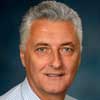 Zeljko Vujaskovic, MD, PhD, Professor, and Isabel Jackson, PhD, Assistant Professor, both from the Department of Radiation Oncology, were awarded a contract for $886,175 from the Biomedical Advanced Research and Development Authority for “A Nonhuman Primate Model Study of Host Biomarker Expression Due to Inhomogenous Ionizing Radiation Exposure.”
Zeljko Vujaskovic, MD, PhD, Professor, and Isabel Jackson, PhD, Assistant Professor, both from the Department of Radiation Oncology, were awarded a contract for $886,175 from the Biomedical Advanced Research and Development Authority for “A Nonhuman Primate Model Study of Host Biomarker Expression Due to Inhomogenous Ionizing Radiation Exposure.”
Hats off to those who have been published!
 Abdu Azad, PhD, Professor, and Kristen Bankert, PhD, Postdoctoral Fellow, both from Department of Microbiology & Immunology, were among the co-authors on “Which Way In? The RalF Arf-GEF Orchestrates Rickettsia Host Cell Invasion” in Plos Pathogen, 2016 Aug 20;11(8):e1005115, and on “RalF-Mediated Activation of Arf6 Controls Rickettsia typhi Invasion by Co-Opting Phosphoinositol Metabolism” in Infection & Immunity, 2016 Nov 18;84(12):3496-3506.
Abdu Azad, PhD, Professor, and Kristen Bankert, PhD, Postdoctoral Fellow, both from Department of Microbiology & Immunology, were among the co-authors on “Which Way In? The RalF Arf-GEF Orchestrates Rickettsia Host Cell Invasion” in Plos Pathogen, 2016 Aug 20;11(8):e1005115, and on “RalF-Mediated Activation of Arf6 Controls Rickettsia typhi Invasion by Co-Opting Phosphoinositol Metabolism” in Infection & Immunity, 2016 Nov 18;84(12):3496-3506.
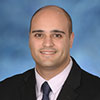 Shahed Badiyan, MD, Assistant Professor, Department of Radiation Oncology, was among the co-authors on “Evaluating Candidacy for Hypofractionated Radiation Therapy, Accelerated Partial Breast Irradiation, and Endocrine Therapy After Breast Conserving Surgery: A Surveillance Epidemiology and End Results (SEER) Analysis” in American Journal of Clinical Oncology, 2016 Sep 15 [Epub ahead of print].
Shahed Badiyan, MD, Assistant Professor, Department of Radiation Oncology, was among the co-authors on “Evaluating Candidacy for Hypofractionated Radiation Therapy, Accelerated Partial Breast Irradiation, and Endocrine Therapy After Breast Conserving Surgery: A Surveillance Epidemiology and End Results (SEER) Analysis” in American Journal of Clinical Oncology, 2016 Sep 15 [Epub ahead of print].
 Cynthia Bearer, MD, PhD, the Mary Gray Cobey Endowed Professor of Neonatology, Department of Pediatrics, was among the co-authors on “Comment on Niemela and Colleagues” in Alcoholism, Clinical and Experimental Research, 2016 Aug;40(8):1607-8.
Cynthia Bearer, MD, PhD, the Mary Gray Cobey Endowed Professor of Neonatology, Department of Pediatrics, was among the co-authors on “Comment on Niemela and Colleagues” in Alcoholism, Clinical and Experimental Research, 2016 Aug;40(8):1607-8.
 Amber Beitelshees, PharmD, Assistant Professor; Toni Pollin, MS, PhD, CGC, Associate Professor; and Alan Shuldiner, MD, the John L. Whitehurst Professor of Medicine, Director of the Program in Pharmacogenomics and Genomic Medicine, and Associate Dean for Personalized and Genomic Medicine, co-authored “User-Centered Design of Multi-Gene Sequencing Panel Reports for Clinicians” in Journal of Biomedical Informatics, 2016 Oct;63:1-10. Dr. Beitelshees also was among the co-authors on “A Genetic Response Score for Hydrochlorothiazide Use: Insights From Genomics and Metabolomics Integration” in Hypertension, 2016 Sep;68(3):621-9.
Amber Beitelshees, PharmD, Assistant Professor; Toni Pollin, MS, PhD, CGC, Associate Professor; and Alan Shuldiner, MD, the John L. Whitehurst Professor of Medicine, Director of the Program in Pharmacogenomics and Genomic Medicine, and Associate Dean for Personalized and Genomic Medicine, co-authored “User-Centered Design of Multi-Gene Sequencing Panel Reports for Clinicians” in Journal of Biomedical Informatics, 2016 Oct;63:1-10. Dr. Beitelshees also was among the co-authors on “A Genetic Response Score for Hydrochlorothiazide Use: Insights From Genomics and Metabolomics Integration” in Hypertension, 2016 Sep;68(3):621-9.
 Arpit Chhabra, MD, Resident, Department of Radiation Oncology, was among the co-authors on “Total Skin Electron Beam Therapy in the Treatment of Mycosis Fungoides: A Review Of Conventional and Low-Dose Regimens” in Clinical Lymphoma, Myeloma, and Leukemia, 2016 Dec;16(12):662-671.
Arpit Chhabra, MD, Resident, Department of Radiation Oncology, was among the co-authors on “Total Skin Electron Beam Therapy in the Treatment of Mycosis Fungoides: A Review Of Conventional and Low-Dose Regimens” in Clinical Lymphoma, Myeloma, and Leukemia, 2016 Dec;16(12):662-671.
 Delia Chiaramonte, MD, Assistant Professor, Family & Community Medicine, and Associate Director and Director of Education, Center for Integrative Medicine, and Bonnie Tarantino, MFA, former Director of Yoga Programs, Center for Integrative Medicine, were featured in “Yoga Heals Your Heart as Well as Your Mind” in Health Radar, 2016 Aug [Epub ahead of print].
Delia Chiaramonte, MD, Assistant Professor, Family & Community Medicine, and Associate Director and Director of Education, Center for Integrative Medicine, and Bonnie Tarantino, MFA, former Director of Yoga Programs, Center for Integrative Medicine, were featured in “Yoga Heals Your Heart as Well as Your Mind” in Health Radar, 2016 Aug [Epub ahead of print].
 Natalie Davis, MD, MMSc, Assistant Professor, Department of Pediatrics, was among the co-authors on “Erythrocyte Adenosine Deaminase Levels Are Elevated in Diamond Blackfan Anemia but Not in The 5q- Syndrome” in American Journal of Hematology, 2016 Dec;91(12):E501-E502.
Natalie Davis, MD, MMSc, Assistant Professor, Department of Pediatrics, was among the co-authors on “Erythrocyte Adenosine Deaminase Levels Are Elevated in Diamond Blackfan Anemia but Not in The 5q- Syndrome” in American Journal of Hematology, 2016 Dec;91(12):E501-E502.
 James Galen, PhD, Professor of Medicine; Sharon Tennant, PhD, Assistant Professor of Medicine, Marcela Pasetti, PhD, Professor of Pediatrics, and Amanda Buskirk, PhD, Postdoctoral Fellow of Pediatrics, all from the Center for Vaccine Development, Institute for Global Health, were co-authors on “Live Attenuated Human Salmonella Vaccine Candidates: Tracking the Pathogen in Natural Infection and Stimulation of Host Immunity” in EcoSal Plus, Nov;7(1).
James Galen, PhD, Professor of Medicine; Sharon Tennant, PhD, Assistant Professor of Medicine, Marcela Pasetti, PhD, Professor of Pediatrics, and Amanda Buskirk, PhD, Postdoctoral Fellow of Pediatrics, all from the Center for Vaccine Development, Institute for Global Health, were co-authors on “Live Attenuated Human Salmonella Vaccine Candidates: Tracking the Pathogen in Natural Infection and Stimulation of Host Immunity” in EcoSal Plus, Nov;7(1).
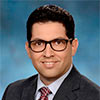 Amit Golding, MD, PhD, Assistant Professor, Department of Medicine, was among the co-authors on “Deep Sequencing of the TCRB Repertoire Of Human Foxp3(+) And Foxp3(-) T Cells Suggests That They Are Completely Distinct and Non-Overlapping” in Clinical and Experimental Immunology, 2016 Nov 23 [Epub ahead of print]. Dr. Golding and Achsah Keegan, PhD, Professor, Department of Microbiology & Immunology, were among the co-authors on “A Novel Method for Assaying Human Regulatory T Cell Direct Suppression Of B Cell Effector Function” in Journal of Immunological Methods, 2016 Nov 13 [Epub ahead of print].
Amit Golding, MD, PhD, Assistant Professor, Department of Medicine, was among the co-authors on “Deep Sequencing of the TCRB Repertoire Of Human Foxp3(+) And Foxp3(-) T Cells Suggests That They Are Completely Distinct and Non-Overlapping” in Clinical and Experimental Immunology, 2016 Nov 23 [Epub ahead of print]. Dr. Golding and Achsah Keegan, PhD, Professor, Department of Microbiology & Immunology, were among the co-authors on “A Novel Method for Assaying Human Regulatory T Cell Direct Suppression Of B Cell Effector Function” in Journal of Immunological Methods, 2016 Nov 13 [Epub ahead of print].
 Arun Gopal, PhD, Assistant Professor, Department of Radiation Oncology, was among the co-authors on “Use of Local Noise Power Spectrum and Wavelet Analysis in Quantitative Image Quality Assurance for EPIDs” in Medical Physics, 2016 Sep;43(9):4996.
Arun Gopal, PhD, Assistant Professor, Department of Radiation Oncology, was among the co-authors on “Use of Local Noise Power Spectrum and Wavelet Analysis in Quantitative Image Quality Assurance for EPIDs” in Medical Physics, 2016 Sep;43(9):4996.
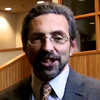 Jack Guralnik, MD, PhD, MPH, Professor, Department of Epidemiology & Public Health, was among the co-authors on “Experiences of Violence Across Life Course and Its Effects on Mobility Among Participants in the International Mobility in Aging Study” in BMJ Open, 2016 Oct 13;6(10):e012339.
Jack Guralnik, MD, PhD, MPH, Professor, Department of Epidemiology & Public Health, was among the co-authors on “Experiences of Violence Across Life Course and Its Effects on Mobility Among Participants in the International Mobility in Aging Study” in BMJ Open, 2016 Oct 13;6(10):e012339.
 Emily Heil, PharmD, Clinical Assistant Professor, Department of Medicine (secondary), and Kerri Thom, MD, Associate Professor, Department of Epidemiology & Public Health, were among the co-authors on “Allergy Profile Should Be Updated After Uneventful Administration of a Penicillin or Penicillin-Related Antibiotic to a Patient with Penicillin Allergy” in Journal of Allergy and Clinical Immunology: In Practice, 2016 Oct 17, pii: S2213-2198(16)30387-7 [Epub ahead of print].
Emily Heil, PharmD, Clinical Assistant Professor, Department of Medicine (secondary), and Kerri Thom, MD, Associate Professor, Department of Epidemiology & Public Health, were among the co-authors on “Allergy Profile Should Be Updated After Uneventful Administration of a Penicillin or Penicillin-Related Antibiotic to a Patient with Penicillin Allergy” in Journal of Allergy and Clinical Immunology: In Practice, 2016 Oct 17, pii: S2213-2198(16)30387-7 [Epub ahead of print].
 Linda Jeng, MD, PhD, Associate Professor of Medicine, Pediatrics, and Pathology, Program for Personalized and Genomic Medicine, and Timothy O’Connor, PhD, Assistant Professor, Department of Medicine, co-authored “Challenges and Disparities in the Application of Personalized Genomic Medicine to Populations with African Ancestry” in Nature Communications, 2016 Oct 11;7:12521.
Linda Jeng, MD, PhD, Associate Professor of Medicine, Pediatrics, and Pathology, Program for Personalized and Genomic Medicine, and Timothy O’Connor, PhD, Assistant Professor, Department of Medicine, co-authored “Challenges and Disparities in the Application of Personalized Genomic Medicine to Populations with African Ancestry” in Nature Communications, 2016 Oct 11;7:12521.
 J. Kristie Johnson, PhD, Associate Professor, Department of Pathology, and Surbhi Leekha, MBBS, MPH, Associate Professor, Department of Epidemiology & Public Health, were among the co-authors on “A Pseudo-Outbreak of Aspergillosis at a Tertiary Care Hospital: Thinking Beyond the Infection Control Risk Assessment” in Infection Control & Hospital Epidemiology, 2016 Oct 11:1-4 [Epub ahead of print].
J. Kristie Johnson, PhD, Associate Professor, Department of Pathology, and Surbhi Leekha, MBBS, MPH, Associate Professor, Department of Epidemiology & Public Health, were among the co-authors on “A Pseudo-Outbreak of Aspergillosis at a Tertiary Care Hospital: Thinking Beyond the Infection Control Risk Assessment” in Infection Control & Hospital Epidemiology, 2016 Oct 11:1-4 [Epub ahead of print].
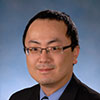 Young Kwok, MD, Associate Professor, Department of Radiation Oncology, was among the co-authors on “Salvage External Beam Radiotherapy for Locally Recurrent Prostate Cancer After Definitive Brachytherapy” in Brachytherapy, 2016 Nov–Dec;15(6):722-729.
Young Kwok, MD, Associate Professor, Department of Radiation Oncology, was among the co-authors on “Salvage External Beam Radiotherapy for Locally Recurrent Prostate Cancer After Definitive Brachytherapy” in Brachytherapy, 2016 Nov–Dec;15(6):722-729.
 Wendy Lane, MD, MPH, Clinical Associate Professor, and Istvan Merchenthaler, MD, PhD, DSc, Professor, both from the Department of Epidemiology & Public Health, were among the co-authors on “Neurotrophic Factor-a1: A Key Wnt-b-Catenin Dependent Anti-Proliferation Factor and ERK-Sox9 Activated Inducer of Embryonic Neural Stem Cell Differentiation to Astrocytes in Neurodevelopment” in Stem Cells, 2016 Oct 6 [Epub ahead of print].
Wendy Lane, MD, MPH, Clinical Associate Professor, and Istvan Merchenthaler, MD, PhD, DSc, Professor, both from the Department of Epidemiology & Public Health, were among the co-authors on “Neurotrophic Factor-a1: A Key Wnt-b-Catenin Dependent Anti-Proliferation Factor and ERK-Sox9 Activated Inducer of Embryonic Neural Stem Cell Differentiation to Astrocytes in Neurodevelopment” in Stem Cells, 2016 Oct 6 [Epub ahead of print].
 Miriam Laufer, MD, MPH, Associate Professor of Pediatrics in the Division of Malaria Research, Institute for Global Health, was senior author on “The Return of Chloroquine-Susceptible Plasmodium falciparum Malaria in Zambia” in Malaria Journal, Dec 5;15(1):584, 2016.
Miriam Laufer, MD, MPH, Associate Professor of Pediatrics in the Division of Malaria Research, Institute for Global Health, was senior author on “The Return of Chloroquine-Susceptible Plasmodium falciparum Malaria in Zambia” in Malaria Journal, Dec 5;15(1):584, 2016.
 Myron Levine, MD, DTPH, the Simon and Bessie Grollman Distinguished Professor of Medicine and Associate Dean For Global Health, Vaccinology And Infectious Diseases; and Wilbur Chen MD, MS, Associate Professor of Medicine, both from the Center for Vaccine Development, Institute for Global Health, were among the co-authors on “The Live Attenuated Cholera Vaccine, CVD 103-Hgr, Primes Responses to the Toxin-Coregulated Pilus Antigen Tcpa in Subjects Challenged With Wild Type Vibrio Cholerae” in Clinical and Vaccine Immunology, 2016 Nov 9. pii: CVI.00470-16 [Epub ahead of print].
Myron Levine, MD, DTPH, the Simon and Bessie Grollman Distinguished Professor of Medicine and Associate Dean For Global Health, Vaccinology And Infectious Diseases; and Wilbur Chen MD, MS, Associate Professor of Medicine, both from the Center for Vaccine Development, Institute for Global Health, were among the co-authors on “The Live Attenuated Cholera Vaccine, CVD 103-Hgr, Primes Responses to the Toxin-Coregulated Pilus Antigen Tcpa in Subjects Challenged With Wild Type Vibrio Cholerae” in Clinical and Vaccine Immunology, 2016 Nov 9. pii: CVI.00470-16 [Epub ahead of print].
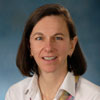 Linda Lewin, MD, Adjunct Associate Professor, and Peter Gaskin, MD, Assistant Professor, both from the Department of Pediatrics, were among the co-authors on “Small Steps in Impacting Clinical, Auscultation of Medical Students” in Global Pediatric Health, 2016 Sep 15;3:2333794X16669013.
Linda Lewin, MD, Adjunct Associate Professor, and Peter Gaskin, MD, Assistant Professor, both from the Department of Pediatrics, were among the co-authors on “Small Steps in Impacting Clinical, Auscultation of Medical Students” in Global Pediatric Health, 2016 Sep 15;3:2333794X16669013.
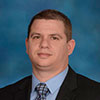 Joshua Lewis, PhD, Assistant Professor; Richard Horenstein, MD, Assistant Professor; and Alan Shuldiner, MD, the John L. Whitehurst Professor of Medicine and Director of the Program for Pharmacogenomics and Genomic Medicine, all from the Department of Medicine and the Program for Personalized and Genomic Medicine, were among the co-authors on “Identifying Clinically-Relevant Sources of Variability: The Clopidogrel Challenge” in Clinical Pharmacology and Therapeutics, 2016 Aug 24. Dr. Lewis and Dr. Shuldiner were also the co-authors on “Clopidogrel Pharmacogenetics: Beyond Candidate Genes and Genome-Wide Association Studies” in Clinical Pharmacology and Therapeutics, 2016 Sep 20 [Epub ahead of print].
Joshua Lewis, PhD, Assistant Professor; Richard Horenstein, MD, Assistant Professor; and Alan Shuldiner, MD, the John L. Whitehurst Professor of Medicine and Director of the Program for Pharmacogenomics and Genomic Medicine, all from the Department of Medicine and the Program for Personalized and Genomic Medicine, were among the co-authors on “Identifying Clinically-Relevant Sources of Variability: The Clopidogrel Challenge” in Clinical Pharmacology and Therapeutics, 2016 Aug 24. Dr. Lewis and Dr. Shuldiner were also the co-authors on “Clopidogrel Pharmacogenetics: Beyond Candidate Genes and Genome-Wide Association Studies” in Clinical Pharmacology and Therapeutics, 2016 Sep 20 [Epub ahead of print].
 Thomas MacVittie, MD, Professor, Department of Radiation Oncology, was among the co-authors on “Response to the Letter to the Editor by Dant, Stricklin and Millage on our Article: ‘Subject-Based Versus Population-Based Care After Radiation Exposure’” in Radiation Research, 2016 Sep;186(3):323.
Thomas MacVittie, MD, Professor, Department of Radiation Oncology, was among the co-authors on “Response to the Letter to the Editor by Dant, Stricklin and Millage on our Article: ‘Subject-Based Versus Population-Based Care After Radiation Exposure’” in Radiation Research, 2016 Sep;186(3):323.
 Javed Mahmood, PhD, Assistant Professor, and Zeljko Vujaskovic, MD, PhD, Professor, both from the Department of Radiation Oncology, were among the co-authors on “Caveolin-1: A Novel Prognostic Biomarker of Radioresistance in Cancer” in International Journal of Radiation Biology, 2016 Dec;92(12):747-753.
Javed Mahmood, PhD, Assistant Professor, and Zeljko Vujaskovic, MD, PhD, Professor, both from the Department of Radiation Oncology, were among the co-authors on “Caveolin-1: A Novel Prognostic Biomarker of Radioresistance in Cancer” in International Journal of Radiation Biology, 2016 Dec;92(12):747-753.
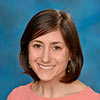 Kristin Maloney, MS, MGC, Instructor; Toni Pollin, MS, PhD, CGC, Associate Professor; and Linda Jeng, MD, PhD, Associate Professor, all from the Department of Medicine, co-authored “An Openly Available Online Tool for Implementing the ACMG/AMP Standards and Guidelines for the Interpretation of Sequence Variants” in Genetics in Medicine, 2016 Nov;18(11). Dr. Pollin also was among the co-authors on “Comprehensive Analysis of Established Dyslipidemia-Associated Loci in the Diabetes Prevention Program” in Circulation Cardiovascular Genetics, 2016 Dec;9(6):495-503, and “The Genetic Architecture of Diabetes in Pregnancy: Implications for Clinical Practice” in American Journal of Perinatology, 2016 Nov;33(13):1319-1326.
Kristin Maloney, MS, MGC, Instructor; Toni Pollin, MS, PhD, CGC, Associate Professor; and Linda Jeng, MD, PhD, Associate Professor, all from the Department of Medicine, co-authored “An Openly Available Online Tool for Implementing the ACMG/AMP Standards and Guidelines for the Interpretation of Sequence Variants” in Genetics in Medicine, 2016 Nov;18(11). Dr. Pollin also was among the co-authors on “Comprehensive Analysis of Established Dyslipidemia-Associated Loci in the Diabetes Prevention Program” in Circulation Cardiovascular Genetics, 2016 Dec;9(6):495-503, and “The Genetic Architecture of Diabetes in Pregnancy: Implications for Clinical Practice” in American Journal of Perinatology, 2016 Nov;33(13):1319-1326.
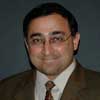 Amal Mattu, MD, Professor, Department of Emergency Medicine, and colleagues from the University of Virginia, the University of California San Francisco, and Oregon Health & Sciences University, had back-to-back electrocardiographic case reports in the December issue of Annals of Emergency Medicine. The first article (68:671–3) described the assessment of a woman with Wolff-Parkinson-White syndrome, who came to the emergency department when she experienced palpitations and weakness. The second report (68:674–7) described a woman with hypertension and diabetes mellitus who sought emergency treatment for chest pain, nausea, dyspnea, and diaphoresis. This column in Annals started with a description of patients’ presentations, including the ECG, and asked the reader to reach a diagnosis before reading the experts’ analysis.
Amal Mattu, MD, Professor, Department of Emergency Medicine, and colleagues from the University of Virginia, the University of California San Francisco, and Oregon Health & Sciences University, had back-to-back electrocardiographic case reports in the December issue of Annals of Emergency Medicine. The first article (68:671–3) described the assessment of a woman with Wolff-Parkinson-White syndrome, who came to the emergency department when she experienced palpitations and weakness. The second report (68:674–7) described a woman with hypertension and diabetes mellitus who sought emergency treatment for chest pain, nausea, dyspnea, and diaphoresis. This column in Annals started with a description of patients’ presentations, including the ECG, and asked the reader to reach a diagnosis before reading the experts’ analysis.
 Braxton Mitchell, MPH, PhD, Professor of Medicine, Program for Personalized and Genomic Medicine, was among the co-authors on “Genome-Wide Association Study of Radiographic Knee Osteoarthritis in North American Caucasians” in Arthritis Rheumatology, 2016 Oct 1 [Epub ahead of print].
Braxton Mitchell, MPH, PhD, Professor of Medicine, Program for Personalized and Genomic Medicine, was among the co-authors on “Genome-Wide Association Study of Radiographic Knee Osteoarthritis in North American Caucasians” in Arthritis Rheumatology, 2016 Oct 1 [Epub ahead of print].
 Siamak Moayedi, MD, Assistant Professor, and Michael Witting, MD, MS, Associate Professor, both from the Department of Emergency Medicine, and Matthew Pirotte, MD, Assistant Professor, Northwestern University Feinberg School of Medicine, co-authored “Safety and Efficacy of the ‘Easy Internal Jugular (IJ)’: An Approach to Difficult IV Access” in Journal of Emergency Medicine, 2016 Dec;51[6]:636–42.
Siamak Moayedi, MD, Assistant Professor, and Michael Witting, MD, MS, Associate Professor, both from the Department of Emergency Medicine, and Matthew Pirotte, MD, Assistant Professor, Northwestern University Feinberg School of Medicine, co-authored “Safety and Efficacy of the ‘Easy Internal Jugular (IJ)’: An Approach to Difficult IV Access” in Journal of Emergency Medicine, 2016 Dec;51[6]:636–42.
 Pranshu Mohindra, MD, Assistant Professor, Department of Radiation Oncology, was among the co-authors on “Educational Impact of a Structured Radiation Oncology Clerkship Curriculum: An Interinstitutional Comparison” in Journal of the American College of Radiology, 2016 Sep 18. pii: S1546-1440(16)30632-9 [Epub ahead of print].
Pranshu Mohindra, MD, Assistant Professor, Department of Radiation Oncology, was among the co-authors on “Educational Impact of a Structured Radiation Oncology Clerkship Curriculum: An Interinstitutional Comparison” in Journal of the American College of Radiology, 2016 Sep 18. pii: S1546-1440(16)30632-9 [Epub ahead of print].
 May Montasser, PhD, Assistant Professor; Joshua Lewis, PhD, Assistant Professor; and Jeffrey O’Connell, PhD, Associate Professor, all from the Department of Medicine and the Program for Personalized and Genomic Medicine, were among the co-authors on “Genome-Wide Association Study of the Modified Stumvoll Insulin Sensitivity Index Identifies BCL2 and FAM19A2 as Novel Insulin Sensitivity Loci” in Diabetes, 2016 Oct;65(10):3200-11. Dr. Montasser and Afshin Parsa MD, MPH, Assistant Professor, also from the Department of Medicine, were among the co-authors on “The Genetics of Blood Pressure Regulation and Its Target Organs From Association Studies in 342,415 Individuals” in Nature Genetics, 2016 Oct;48(10):1171-84.
May Montasser, PhD, Assistant Professor; Joshua Lewis, PhD, Assistant Professor; and Jeffrey O’Connell, PhD, Associate Professor, all from the Department of Medicine and the Program for Personalized and Genomic Medicine, were among the co-authors on “Genome-Wide Association Study of the Modified Stumvoll Insulin Sensitivity Index Identifies BCL2 and FAM19A2 as Novel Insulin Sensitivity Loci” in Diabetes, 2016 Oct;65(10):3200-11. Dr. Montasser and Afshin Parsa MD, MPH, Assistant Professor, also from the Department of Medicine, were among the co-authors on “The Genetics of Blood Pressure Regulation and Its Target Organs From Association Studies in 342,415 Individuals” in Nature Genetics, 2016 Oct;48(10):1171-84.
 Nidal Muvarak, MSc, Research Assistant (first author); Pratik Nagaria, PhD, Research Associate; Feyruz Rassool, PhD, Associate Professor (last author), all from the Department of Radiation Oncology; along with Ying Zou, PhD, Associate Professor, Department of Pathology; Maria Baer, MD, Professor, Department of Medicine; and Soren Bentzen, PhD, DMSc, Professor, Department of Epidemiology & Public Health, were among the co-authors on “Enhancing the Cytotoxic Effects of PARPInhibitors with DNA Demethylating Agents—A Potential Therapy for Cancer” in CancerCell, 2016 Oct 10;30(4):637-650.
Nidal Muvarak, MSc, Research Assistant (first author); Pratik Nagaria, PhD, Research Associate; Feyruz Rassool, PhD, Associate Professor (last author), all from the Department of Radiation Oncology; along with Ying Zou, PhD, Associate Professor, Department of Pathology; Maria Baer, MD, Professor, Department of Medicine; and Soren Bentzen, PhD, DMSc, Professor, Department of Epidemiology & Public Health, were among the co-authors on “Enhancing the Cytotoxic Effects of PARPInhibitors with DNA Demethylating Agents—A Potential Therapy for Cancer” in CancerCell, 2016 Oct 10;30(4):637-650.
 Pratik Nagaria, PhD, Research Associate, and Feyruz Rassool, PhD, Associate Professor, both from the Department of Radiation Oncology, were among the co-authors on “High-Fidelity Reprogrammed Human Ipscs Have a High Efficacy of DNA Repair And Resemble hESCs in Their MYC Transcriptional Signature” in Stem Cells International, 2016 Sep 1 [Epub ahead of print].
Pratik Nagaria, PhD, Research Associate, and Feyruz Rassool, PhD, Associate Professor, both from the Department of Radiation Oncology, were among the co-authors on “High-Fidelity Reprogrammed Human Ipscs Have a High Efficacy of DNA Repair And Resemble hESCs in Their MYC Transcriptional Signature” in Stem Cells International, 2016 Sep 1 [Epub ahead of print].
 Lisa Pineles, MA, Research Associate; Anthony Harris, MD, MPH, Professor; and Daniel Morgan, MD, Associate Professor (last author), all from the Department of Epidemiology & Public Health, were among the co-authors on “Frequency of Adverse Events Before, During, and After Hospital Admission” in Southern Medical Journal, 2016 Oct;109(10):631-635.
Lisa Pineles, MA, Research Associate; Anthony Harris, MD, MPH, Professor; and Daniel Morgan, MD, Associate Professor (last author), all from the Department of Epidemiology & Public Health, were among the co-authors on “Frequency of Adverse Events Before, During, and After Hospital Admission” in Southern Medical Journal, 2016 Oct;109(10):631-635.
 Horea Rus, MD, PhD, Professor, Department of Neurology, was among the co-authors on “RGC-32 is Expressed in the Human Atherosclerotic Arterial Wall: Role in C5b-9-Induced Cell Proliferation and Migration” in Experimental and Molecular Pathology, 2016 Oct;101(2):221-230.
Horea Rus, MD, PhD, Professor, Department of Neurology, was among the co-authors on “RGC-32 is Expressed in the Human Atherosclerotic Arterial Wall: Role in C5b-9-Induced Cell Proliferation and Migration” in Experimental and Molecular Pathology, 2016 Oct;101(2):221-230.
 Shabnam Salimi, PhD, Postdoctoral Fellow; Joshua Lewis, PhD, Assistant Professor; Braxton Mitchell, MPH, PhD, Professor of Medicine; Jeffrey O’Connell, PhD, Associate Professor; James Perry, PhD, Assistant Professor; and Alan Shuldiner, MD, the John L. Whitehurst Professor of Medicine and Director of the Program for Pharmacogenomics and Genomic Medicine, all from the Department of Medicine and the Program for Personalized and Genomic Medicine, were among the co-authors on “Clopidogrel Improves Skin Microcirculatory Endothelial Function in Persons with Heightened Platelet Aggregation” in Journal of the American Heart Association, 2016 Oct 31;5(11).
Shabnam Salimi, PhD, Postdoctoral Fellow; Joshua Lewis, PhD, Assistant Professor; Braxton Mitchell, MPH, PhD, Professor of Medicine; Jeffrey O’Connell, PhD, Associate Professor; James Perry, PhD, Assistant Professor; and Alan Shuldiner, MD, the John L. Whitehurst Professor of Medicine and Director of the Program for Pharmacogenomics and Genomic Medicine, all from the Department of Medicine and the Program for Personalized and Genomic Medicine, were among the co-authors on “Clopidogrel Improves Skin Microcirculatory Endothelial Function in Persons with Heightened Platelet Aggregation” in Journal of the American Heart Association, 2016 Oct 31;5(11).
 Terez Shea-Donohue, PhD, Professor, Department of Radiation Oncology, was among the co-authors on “The Synthesis of OspD3 (ShET2) in Shigella flexneri is Independent of OspC1” in Gut Microbes, 2016 Nov;7(6):486-502. She also was among the co-authors on “A Critical Role for IL-25 In Host Protective Th2 Memory Response Against Heligmosomoides polygyrus bakeri” in Infection and Immunity, 2016 Nov 18;84(12):3328-3337.
Terez Shea-Donohue, PhD, Professor, Department of Radiation Oncology, was among the co-authors on “The Synthesis of OspD3 (ShET2) in Shigella flexneri is Independent of OspC1” in Gut Microbes, 2016 Nov;7(6):486-502. She also was among the co-authors on “A Critical Role for IL-25 In Host Protective Th2 Memory Response Against Heligmosomoides polygyrus bakeri” in Infection and Immunity, 2016 Nov 18;84(12):3328-3337.
 Bethany Strong, MD, MS, Graduate Student (first author), and Wendy Lane, MD, MPH, Clinical Associate Professor (last author), both from the Department of Epidemiology & Public Health; and Andrea Shipper, MSLIS, and Katherine Downton, MSLIS, both from the Health Sciences and Human Services Library, were among the co-authors on “The Effects of Health Care-Based Violence Intervention Programs on Injury Recidivism and Costs: A Systematic Review” in Journal of Trauma and Acute Care Surgery, 2016 Nov;81(5):961-970.
Bethany Strong, MD, MS, Graduate Student (first author), and Wendy Lane, MD, MPH, Clinical Associate Professor (last author), both from the Department of Epidemiology & Public Health; and Andrea Shipper, MSLIS, and Katherine Downton, MSLIS, both from the Health Sciences and Human Services Library, were among the co-authors on “The Effects of Health Care-Based Violence Intervention Programs on Injury Recidivism and Costs: A Systematic Review” in Journal of Trauma and Acute Care Surgery, 2016 Nov;81(5):961-970.
 Carole Sztalryd, PhD, Associate Professor, Department of Medicine, co-authored “The Perilipins: Major Cytosolic Lipid Droplet-Associated Proteins and Their Roles in Cellular Lipid Storage, Mobilization, and Systemic Homeostasis” in Annual Review of Nutrition, 2016 Jul 17;36:471-509.
Carole Sztalryd, PhD, Associate Professor, Department of Medicine, co-authored “The Perilipins: Major Cytosolic Lipid Droplet-Associated Proteins and Their Roles in Cellular Lipid Storage, Mobilization, and Systemic Homeostasis” in Annual Review of Nutrition, 2016 Jul 17;36:471-509.
 Milagritos Tapia, MD, Associate Professor of Pediatrics, and Karen Kotloff, MD, Professor of Pediatrics, both from the Center for Vaccine Development, Institute for Global Health were among the co-authors on “Pertussis-Associated Pneumonia in Infants and Children From Low- and Middle-Income Countries Participating in the PERCH Study” in Clinical Infectious Diseases, 2016 Dec 1;63(suppl 4):S187-S196.
Milagritos Tapia, MD, Associate Professor of Pediatrics, and Karen Kotloff, MD, Professor of Pediatrics, both from the Center for Vaccine Development, Institute for Global Health were among the co-authors on “Pertussis-Associated Pneumonia in Infants and Children From Low- and Middle-Income Countries Participating in the PERCH Study” in Clinical Infectious Diseases, 2016 Dec 1;63(suppl 4):S187-S196.
 Huichun Xu, MD, PhD, Instructor, Departments of Medicine and Epidemiology & Public Health, was among the co-authors on “Genome-Wide Association of CKD Progression: The Chronic Renal Insufficiency Cohort Study” in Journal of the American Society of Nephrology. 2016 Oct 11 [Epub ahead of print].
Huichun Xu, MD, PhD, Instructor, Departments of Medicine and Epidemiology & Public Health, was among the co-authors on “Genome-Wide Association of CKD Progression: The Chronic Renal Insufficiency Cohort Study” in Journal of the American Society of Nephrology. 2016 Oct 11 [Epub ahead of print].

